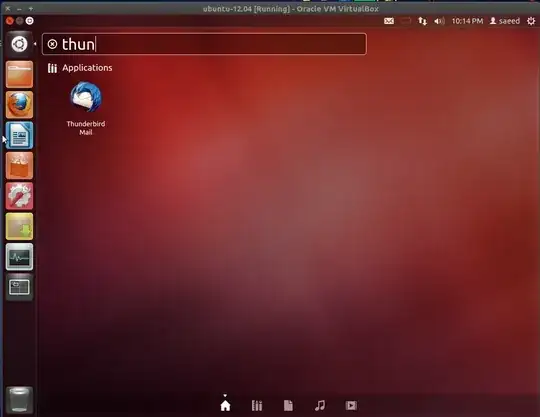Can anyone give me step by step idea to install integrated gmail in Ubuntu 12.04 with screen-shots and steps till end. It would be very helpful for other new users as well.
Asked
Active
Viewed 5,666 times
2
-
1Using the Webapps is what you want right? – Uri Herrera Sep 12 '12 at 17:15
-
2Please clarify/refine your definition of "integrated gmail". Do you mean integration into the messaging menu, launcher panel, HUD, and dash? Or were you looking for integration into a desktop mail client, e.g. Thunderbird? – Insperatus Sep 12 '12 at 20:11
-
Please do be more specific. For old linux geeks who have no idea what the modern notion of "webapp integration" into Unity means, check out webapps - How do I use Ubuntu's web application integration? - Ask Ubuntu – nealmcb Jan 06 '13 at 18:04
3 Answers
2
You could use Geary, but it is in an early stage of development.
There are a stable ppa and a daily ppa. If you want stable software, don't use the daily ppa, it's at your own risk.
To add the stable ppa and install Geary type the following in a terminal.:
sudo apt-add-repository ppa:yorba/ppa
sudo apt-get update
sudo apt-get install geary
To add the daily ppa and install Geary type the following in a terminal.:
sudo apt-add-repository ppa:yorba/daily-builds
sudo apt-get update
sudo apt-get install geary

BuZZ-dEE
- 14,223
-
I will NEVER change my repositories for any reason. If it can't be done by normal methods I do not want it on my production systems. It would simply add more documentation workload to make sure it is another page of documentation is in the binder for each and every system's configuration, for security audits and etup of new systems... And those pages would then require audits of the foreign repositories. No way. Nu-huh. Period. I would have a revolt on my hands if I allowed anything like this in our shop. – SDsolar Jul 31 '17 at 12:01
2
- Open
Thunderbirdprogram.

- From menu go to
Edit->Account Settings.

- In "Account Settings" dialogue select
Account Action->Add Mail Account

- In the "Mail Setup Account" enter your Gmail username and password and click on Continue button.

- In the next step select "IMAP" or "POP3" and click on "Create Account" button.

- Then you can see your Gmail content in Thunderbird.

Saeed Zarinfam
- 17,392
-
You left out the most important part - Add the extension "Lightning" for calendar synchronization. – SDsolar Jul 31 '17 at 12:02
0
That depends on that you mean by integrated... There are a number of applications you can install to manage your email, contacts, calendar, etc. But I'm not aware of anything natively built into the default Desktop environment (that includes Unity, Gnome or KDE).
JulioHM
- 634
-
1Unity webapps can do that "integration" but it's not clear if that's what the OP wants – Uri Herrera Sep 12 '12 at 17:39
-